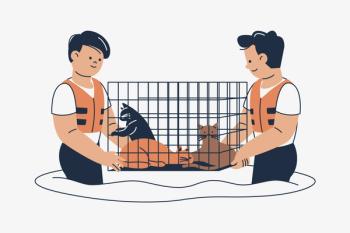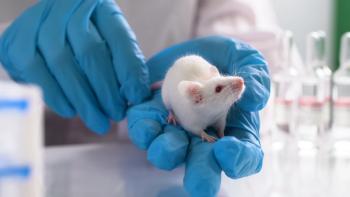
Michigan lawmakers pass farm-animal welfare bill
New housing requirements for swine, veal calves and poultry were adopted in Michigan after a last-minute push by the Humane Society of the United States.
Lansing, Mich.
-- Michigan lawmakers passed legislation that mandates housing requirements for veal calves, egg-laying hens and pregnant sows.
Last minute maneuvering -- reportedly spearheaded by the Humane Society of the United States (HSUS) -- crippled a Michigan Veterinary Medical Association-backed proposal to form a livestock housing board to monitor animal-welfare issues. This board would have been made up of farmers, agricultural industry representatives, veterinarians and faculty from Michigan State University's College of Veterinary Medicine.
The new law will restrict housing for veal calves, pigs and hens by requiring that "any pig during pregnancy, calf raised for veal and egg-laying hen that is kept on a farm" be housed so the animal can lie down, stand up and turn around freely. Exemptions include research, veterinary treatment, transportation, at rodeos and state fairs, during slaughter and, in the case of pregnant sows, housing seven days before expected birth. Michigan farmers will have three years to comply with the veal-calf restrictions and 10 years to comply with the rules for pregnant sows and egg-laying hens.
The Michigan Farm Bureau (MFB) -- involved in earlier work on the bill -- compromised on these amendments to block the possibility of an HSUS-driven ballot initiative. MFB officials contend they will "pursue a substitute bill ... which would advocate scientific-based animal care standards for all livestock species.
Before the bill's signing, MFB also worked to extend the veal-crate requirement's start date from one year to three years.
"MFB member-developed policy strongly opposes the use of ballot initiatives as a way to regulate modern livestock production and management practices," according to a recent MFB statement. "The compromise legislation appears to diffuse this threat, at least in the near future, because in negotiating the legislation, HSUS has said it will not pursue a Michigan farm animal confinement-related ballot measure prior to the effective date of the law."
Officials of the Michigan VMA found out about the changes to the original bill a few weeks ago. In a presentation before representatives of the Michigan VMA, HSUS spokespersons said they'd struck a deal with agricultural trade groups to rewrite the bill to combat abusive practices by so-called factory farms, reports Dr. Steven Steep, chair of the Michigan VMA Legislative Advisory Committee.
At the meeting, veterinarians asked about the high mortality rate involved in free-range life for egg-laying hens and what exactly constituted a factory farm, but didn't receive satisfactory answers, Steep adds.
"We are in sympathy with the elimination of sow-gestation crates and veal crates, but we want to approach all these issues with scientific knowledge, not emotion and knee-jerk reactions," Steep told DVM Newsmagazine.
A spokesperson for the Michigan VMA was not immediately available for comment after the bill's passage.
Newsletter
From exam room tips to practice management insights, get trusted veterinary news delivered straight to your inbox—subscribe to dvm360.




